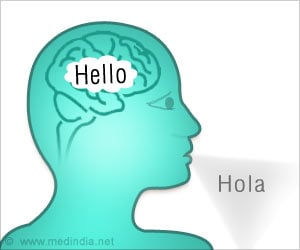Children between the ages of 3 and 5 who are native speakers of Mandarin Chinese fare better than their english-speaking counterparts at processing musical pitch.

TOP INSIGHT
Children between the ages of 3 and 5 who are native speakers of Mandarin chinese fare better than their english-speaking counterparts at processing musical pitch.
"The study revealed for the first time that tone-language experience is associated with advanced musical pitch processing in young children," said lead author Sarah Creel from the University of California-San Diego.
It's the linguistic attention to pitch that gives young Mandarin speakers an advantage in perceiving pitch in music, the researchers said.
Both language and music contain pitch changes, so if language is a separate mental faculty, then pitch processing in language should be separate from pitch processing in music. The study stated that brain skills learned in one area affect learning in another.
"Our research suggests that there's permeability and generalisation across cognitive abilities," Creel added. For the study, the team conducted two separate experiments with similar groups of young Mandarin Chinese learners and English learners.
The study also has far-reaching theoretical implications for neuroscience and behaviour as well as for designing early intervention programmes, or "brain training" regimes, Creel noted.
Source-IANS
 MEDINDIA
MEDINDIA




 Email
Email






